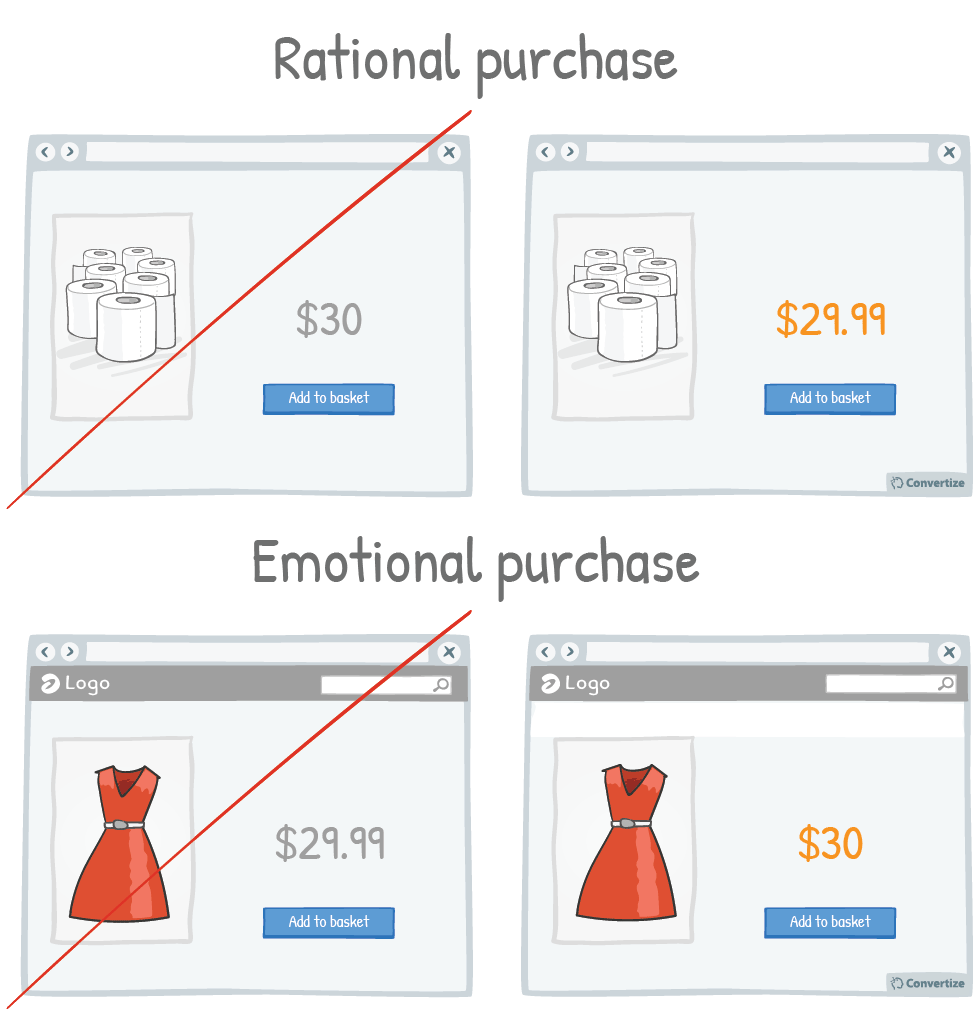Home
A/B Testing Idea #104 - Emotion and rational purchasing decisions: implications for rounding prices

Description
Our brains process prices differently depending on whether a purchase is guided by rationality (for example for non-luxury, necessary goods) or by emotions (those products which we buy to make us happy, or when we "just can't help ourselves", etc.).
When someone is making an emotional purchase, round prices work best because they are simple to understand and are therefore processed fluently by the brain. When consumers can process the price quickly, the price “just feels right" which fits nicely with an emotional, and perhaps impulsive, purchase - such as the dress in the image above.
When dealing with a more rational purchase, such as toilet paper as shown above, then the opposite is true. We use more mental effort to process non-rounded prices and so these seem more fitting with rational purchases. What's more, we're often more concerned with value when we buy something rational and using a non-rounded number gives the opportunity to alter buyer perception of the price value. Using a decimal point, such as $29.75 or $29.99, will make the price seem significantly lower than $30 - even though in reality there is not so much difference - as we are prone to only process the first digits of a price (so will read it as "£29 something").
Inspired by Nick Kolenda
Principles
- Cognitive Ease (Khaneman, 2011)
The Research
Cognitive Ease
The ease with which our brain processes information and how the level of ease impacts how positively we feel about something.

Oops, you have reached your limit of 1 free tactic per hour
To get unlimited access to our 250+ tactics,
Join our FREE mailing list
Or wait 00:59:59





